GIVE YOUR WORKFORCE THE SKILLS TO DELIVER OUTSTANDING CARE


ADULT CARE APPRENTICESHIPS






AT APPRENTICESHIPS AT SALFORD CITY COLLEGE, WE HAVE A PROVEN TRACK RECORD OF DELIVERING HIGHQUALITY ADULT CARE APPRENTICESHIP TRAINING, FROM ENTRY-LEVEL TO SENIOR MANAGEMENT, FOR STAFF IN VARIOUS CARE SETTINGS TO SUPPORT BOTH THEIR SKILLS GROWTH AND THE BUSINESS GROWTH OF THEIR EMPLOYERS.
More than 1800 learners are on an apprenticeship programme with the College, and we are currently supporting approximately 600 employers to invest in their workforce.
Adult social care is a fundamental part of all our communities. It supports people to live with independence, dignity and choice.
We know that most people who work in the sector find it incredibly rewarding. Such a large workforce offers many exciting career opportunities for people with the right skills and values who want to directly support people, specialise, or progress into management roles. Still, despite this, the adult social care sector faces unprecedented challenges in workforce supply and demand.
Statistics show that we may need an extra 480,000* people working in social care by 2035 to keep pace with demand,
while in addition, we may lose a further 430,000* people in the next ten years if those aged 55 and over decide to retire.
While vacancy rates are growing and demand from an ageing population is growing, the number of people in the workforce has shrunk by 50,000. So, at a time when we need more people, we have fewer.
The high vacancy rate is an opportunity to recruit more people to work in a job that is rewarding, increasingly valued by the public and offers long-term career opportunities, but to attract and retain workers, we must provide good development and career pathways.
Working in adult social care requires far more complex skills than it did even ten years ago, as care providers support people with more complex needs. So investing in staff learning and development is essential to meet new demands, but it is also a way to reduce staff turnover and maintain regulatory compliance.
Based at the heart of our community, we are well placed to support the long-term requirements of the Adult Care workforce which, with the 1-2-1 support of our trained assessors, receive tailored, flexible training. This means that as employers increase capacity to meet new demands, their staff have the right skills and knowledge to continue to deliver exceptional care.
“STATISTICS SHOW THAT WE MAY NEED AN EXTRA 480,000* PEOPLE WORKING IN SOCIAL CARE BY 2035 TO KEEP PACE WITH DEMAND, WHILE IN ADDITION, WE MAY LOSE A FURTHER 430,000* PEOPLE IN THE NEXT TEN YEARS IF THOSE AGED 55 AND OVER DECIDE TO RETIRE.”
Typical Duration of Learning: 12-18 months
Start Dates: Flexible start dates throughout the year
Delivery Model: Blended delivery model to suit the needs of the employer and apprentice


An Adult Care Worker apprenticeship is for people who deliver frontline care for vulnerable adults within their own home, day centres, care homes and a variety of other care settings. Typical job roles for this apprenticeship include carer, care worker, personal care assistant, and support worker.

This apprenticeship has been designed to develop the skills, knowledge and behaviours your employees need to excel in their role, whilst gaining the expertise to provide outstanding care in line with your organisation’s culture. A caring approach to physical and emotional support will be at the heart of your employee’s personalised and inclusive service. They’ll gain confidence in their ability to make a positive difference in the life of someone in their care.
This apprenticeship is suitable for people that are interested in developing a career in adult care.
C Level 2 Diploma in care
C Care certificate
C Functional Skill Level 1 in English (unless previously achieved)
C Functional Skill Level 1 in Maths (unless previously achieved)
An adult care worker apprentice will learn and demonstrate the following skills, knowledge and behaviours:
C How to effectively carry out the main tasks and responsibilities according to their job role
C The importance of having the right values and behaviours
C Treat people with respect, dignity and honour their human rights
C How to communicate clearly and effectively

C How to support individuals to remain safe from harm
C How to promote health and wellbeing for both colleagues and the individuals they support
C Work professionally and seek to develop professionally
C Demonstrate care, compassion, courage, communication, competence, and commitment
C Regular assignments and observations of practice
C The creation of a portfolio of evidence
C An End Point Assessment
Progression available through Level 3 Apprenticeship in Lead Adult Care Worker
Typical Duration of Learning: 12-18 months
Start Dates: Flexible start dates throughout the year
Delivery Model: Blended delivery model to suit the needs of the employer and apprentice
The Lead Adult Care Worker apprenticeship is for people who deliver, or supervise the delivery of frontline care for vulnerable adults. Suitable for people already working in health and social care, this apprenticeship supports a range of roles including senior carer, personal care assistant, and support worker.

This apprenticeship has been designed to develop the skills, knowledge and behaviours your employee needs to excel in their job role. In addition to delivering excellent person-centred care in line with your organisation’s culture, they’ll gain the expertise to exercise judgement and provide leadership, guidance and direction to team members.
Lead adult care worker apprentices will learn and demonstrate the following skills, knowledge and behaviours:
C Be able to carry out the main tasks and responsibilities according to their role as a lead care worker
C How to treat people with dignity and respect and honour their human rights
C How to communicate clearly and responsibly using different methods
C How to support individuals to remain safe from harm
C How to champion health and wellbeing for the individuals they support and work colleagues
C How to work professionally, including how to manage own professional development.
C To consistently show care, compassion, courage, communication, competence and commitment.
C Level 3 Diploma in Adult care
C Functional skills level 2 in English (unless previously achieved)
C Functional skills level 2 in maths (unless previously achieved)
C Care certificate
Apprentices will be allocated a trainer assessor, who will support and guide them for the duration of the apprenticeship. The apprenticeship will largely be delivered in the workplace, using a blended format of observations, tutorials, self-study, research and a range of e-Learning courses and personal reflection.
C Regular assignments and observations of practice
C The creation of a portfolio of evidence
C An End Point Assessment (EPA)

Progression available through Level 4 Lead Practitioner in Adult Care Apprenticeship

Typical Duration of Learning: 18 months
Start Dates: Flexible start dates throughout the year
Delivery Model: Blended delivery model to suit the needs of the employer and apprentice
This apprenticeship is for experienced care workers who are recognised as or are aspiring to be a lead practitioner within their care team or wish to hone their leadership skills further.
This apprenticeship will allow them to lead in areas such as care needs assessment, occupational therapy, physiotherapy, rehabilitation and reablement, telecare and assistive technology. The varied content covers the statutory frameworks, standards, guidance and Codes of Practice which underpin practice and the safe delivery of services. The apprentice will study how to mentor colleagues to encourage clients to actively participate in the way their care and support is delivered and provide leadership and mentoring to others. As part of their role, they’ll also promote and sustain a values-based culture within your organisation.
On completion the apprentice will be able to:
C Create a culture that promotes dignity and respects diversity and inclusion
C Model high levels of empathy, understanding and compassion
C Use effective and appropriate communication
C Promote safeguarding including working with external agencies in response to safeguarding concerns
C Apply a person-centred approach and collaborate with external partners to achieve best outcomes
C Lead a robust, values-based recruitment and selection and induction process

C Apply legal and ethical frameworks in relation to confidentiality and information sharing

C Consider holistic solutions to promote and maintain wellbeing
C Create effective partnerships including inter agency, joint and integrated working
C Use goals and aspirations to support own and others professional development
C Level 4 Diploma in adult care

C Functional Skill Level 2 in English (unless previously achieved)
C Functional Skill Level 2 in mathematics (unless previously achieved)
Apprentices will be allocated a trainer assessor, who will support and guide them for the duration of the apprenticeship. The apprenticeship will largely be delivered in the workplace, using a blended format of observations, tutorials, self-study, research and a range of e-Learning and personal reflection.
C Regular assignments and observations of practice
C The creation of a portfolio of evidence
C An End Point Assessment (EPA)
Progression available through Level 5 Leader in Adult Care Apprenticeship
Typical Duration of Learning: 18 months
Start Dates: Flexible start dates throughout the year
Delivery Model: Blended delivery model to suit the needs of the employer and apprentice
This apprenticeship is for care team leaders, managers and assistant managers who wish to hone their leadership skills to develop and implement a values-based culture within their team, unit or organisation.
Adult care leaders need the skills to guide and inspire teams to make positive differences to people’s lives. This apprenticeship is suitable for those within your organisation responsible for business development, financial control, resilience and continuity as well as for managing risk and organisational change.
Apprentices will explore the systems and processes that monitor and sustain quality of care including assessments, care plans and service delivery. They’ll also look at compliance with regulations and your organisational policies and procedures. Managers will polish their skills in leading and supporting

others to work in a person-centred way. Other key areas include communication, maintaining dignity and human rights, safeguarding, health and wellbeing, professional development and leadership.
This apprenticeship is suitable for people already working in a senior role within health and social care.
On completion the apprentice will be able to:
C Understand
- Statutory frameworks
- Standards and guidance for safe service delivery
- Systems and processes to ensure compliance
- Assessment and outcomes-based practice
- Principles and theories of change management
- Legislative and regulatory frameworks
- Theories and models underpinning performance and appraisal
- Legislation and policy initiatives for promoting ED&I
C Implement health and safety and risk management policies
C Use legal and ethical frameworks and local solutions in relation to confidentiality and sharing of information

“THE APPRENTICESHIP PROGRAMME HAS GIVEN OUR APPRENTICE THE LIBERTY TO MAKE A REAL DIFFERENCE TO THE LIVES OF INDIVIDUALS. HE CONTINUES TO EXCEL HIMSELF THROUGH HIS PROFESSIONAL DEVELOPMENT AT WORK AND HIS ONLINE COACHING AT COLLEGE. HE THRIVES IN LEARNING, TRAINING AND WELCOMES FEEDBACK TO INCREASE HIS KNOWLEDGE, UNDERSTANDING AND EXPERIENCE TO DELIVER QUALITY CARE.”
K.B. WIGAN COUNCIL
“EVERY ASPECT OF THE SCC APPRENTICESHIP TEAM IS SUPERB, CONSTANTLY DEMONSTRATING TRUE DEDICATION TO THEIR LEARNERS AND A REAL DESIRE TO PROVIDE A QUALITY SERVICE TO THEIR EMPLOYERS. THEY ARE CONSISTENT, GENUINE, AND ENTHUSIASTIC, ENSURING EVERY COMMITMENT THEY HAVE MADE IS FILLED, AND EVERY PROMISE DELIVERED”
C Implement systems to recognise and respond to potential signs of abuse and or unsafe practice

C Use enhanced communication tools and strategies
C Identify national and local solutions for the safeguarding of adults and children and create a culture that supports whistleblowing
C Use models for monitoring, reporting and responding to changes in health and wellbeing
C How to use goals and aspirations to support personal and colleague development
C How to plan, source, access and record team professional development
C Apply management and leadership theories to adult care settings
C Consistently show care, compassion, courage, communication, competence and commitment.
THE APPRENTICE WILL COMPLETE
C Level 5 Diploma in leadership and management for adult care

C Functional Skill Level 2 in English (unless previously achieved)
C Functional Skill Level 2 in mathematics (unless previously achieved)
Apprentices will be allocated an assessor, who will provide 1-2-1 support and guidance for the duration of the apprenticeship. The apprenticeship will largely be delivered in the workplace, using a blended format of observations, tutorials, self-study, research and a range of e-Learning courses and personal reflection.

ASSESSMENT WILL INCLUDE

C Regular assignments
C The creation of a portfolio of evidence
C An End Point Assessment (EPA)
This is a recognised qualification across the adult care sector and allows for further opportunities and career development in alternative settings, supported by senior management apprenticeships at Level 7
“WE HAVE BEEN ASSOCIATED WITH SALFORD COLLEGE APPRENTICE SCHEME SINCE 2017. MANY OF OUR CARE PROFESSIONALS AND KEY PLAYERS HAVE COMPLETED LEVELS 2, 3 AND 4 IN HEALTH AND SOCIAL CARE/BUSINESS ADMINISTRATION. OUR ASSOCIATION WITH SALFORD COLLEGE HAS ALWAYS BEEN EXCELLENT AND ALL THE TUTORS WHO HAVE VISITED OUR OFFICES ON A REGULAR BASIS HAVE BEEN FRIENDLY AND APPROACHABLE. I RECOMMEND THE APPRENTICESHIP TEAM WHOLEHEARTEDLY, SHOULD YOU REQUIRE ANY HELP OR SUPPORT REGARDING APPRENTICESHIPS” SUSAN ROBINSON, HOME INSTEAD SALFORD

Typical Duration of Learning: 12-14 months
Start Dates: Flexible start dates throughout the year
Delivery Model: Blended delivery model to suit the needs of the employer and apprentice
This apprenticeship is designed to support Community Health and Wellbeing Workers, which are a rapidly expanding workforce, that work in partnership with individuals and their communities to identify and address, broad health and wellbeing needs, in order to improve health, prevent ill health and reduce inequalities.
Their work is informed by the wider social determinants of health, such as the social, cultural, political, economic, commercial and environmental factors that shape the conditions in which people are born, grow, live, work and age.
To do this, Community Health and Wellbeing Workers:
C Address the causes of poor health and wellbeing in the broadest sense (causes of the causes)

C Take a holistic ‘whole person’ approach regarding physical, mental, emotional and social health and wellbeing and resilience
C Work with individuals, groups and communities to identify what matters to them, building on their strengths to improve health and wellbeing
C Understand the local and accessible services and resources available, to which people in the community can be signposted to support their health and wellbeing needs
C Identify gaps in available services and resources preventing individuals and communities from achieving optimal health and wellbeing
C Build relationships with local organisations and groups
Typical job roles include: Care or Service Navigator, Community Connector, Community Health Champion, Health Trainer, Live Well Coach, Social Prescribing Link Worker
“APPRENTICESHIPS AT SALFORD CITY COLLEGE HAVE BEEN WORKING IN PARTNERSHIP WITH WIGAN COUNCIL FOR OVER TWO YEARS, DELIVERING A RANGE OF APPRENTICESHIPS IN HEALTH & SOCIAL CARE. THE PARTNERSHIP DEVELOPED A DELIVERY MODEL FOR EACH PROGRAMME THAT HAS ALLOWED WIGAN COUNCIL TO MARKET THEIR APPRENTICESHIPS EASILY TO THEIR EMPLOYEES. QUARTERLY PROGRESS MEETINGS TAKE PLACE TO DISCUSS PROGRESS OF EACH EMPLOYEE, ALLOWING THE OPPORTUNITY TO IDENTIFY POTENTIAL CONCERNS/DIFFICULTIES AND SUCCESSES OF LEARNERS, KEEPING EVERYTHING ON TRACK.”
ALISON HATCH, ASSISTANT BUSINESS PARTNER FOR ADULT SOCIAL CARE AND HEALTH WORKFORCE DEVELOPMENT TEAM WIGAN COUNCIL
SKILLS FOR CARE
THE STATE OF THE ADULT SOCIAL CARE SECTOR AND WORKFORCE IN ENGLAND

WHAT’S INCLUDED?
C Use preventative approaches to promote the health and wellbeing of individuals, groups and communities, addressing the wider determinants of health and causes of ill-health
C Help communities to build local resilience and identify strengths, capacity and resources that support their health and wellbeing
C Provide informed advice about local services and projects that support health and wellbeing
C Manage referrals from a range of agencies, professionals and through self-referral

C Apply behavioural science to help people find practical solutions for better health and wellbeing
C Implement actions set out in strategies and policies that promote health and wellbeing at community level
C Communicate public health messages and information to promote health and wellbeing at an individual, group and community level
C Manage data and information and contribute to the evaluation of projects and services
C Operate within legal and ethical frameworks that relate to the promotion and protection of the public’s health and wellbeing
C Take responsibility for personal and professional development in line with organisational protocol
THE APPRENTICE WILL COMPLETE
C The Skills knowledge and behaviours for the community Health and Well-being worker standard
C Functional skills English level 2 (or equivalent)
C Functional skills Maths level 2 (or equivalent)
Apprentices will be allocated an assessor, who will support and guide them for the duration of the apprenticeship. The apprenticeship will largely be delivered in the workplace, using a blended format of observations, tutorials, self-study, research and a range of e-Learning courses and personal reflection.
ASSESSMENT WILL INCLUDE
C Regular assignments and observations
C The creation of a portfolio of evidence
C A three-part endpoint assessment
STATISTICS SHOW THAT WE MAY NEED AN EXTRA 480,000* PEOPLE WORKING IN SOCIAL CARE BY 2035 TO KEEP PACE WITH DEMAND, WHILE IN ADDITION, WE MAY LOSE A FURTHER 430,000* PEOPLE IN THE NEXT TEN YEARS IF THOSE AGED 55 AND OVER DECIDE TO RETIRE.
Typical Duration of Learning: 18 months
Start Dates: Flexible start dates throughout the year
Delivery Model: Blended delivery model to suit the needs of the employer and apprentice
Early Intervention Practitioners offer impartial information, advice, guidance and practical help and emotional support to individuals experiencing a range of problems to help them overcome concerns or barriers impacting their daily lives such as alcohol, drug or gambling misuse, behavioural issues, mobility issues and learning difficulties.
An Early Intervention Practitioner is responsible for identifying and sourcing the right intervention at the right time in an individual’s life in order to achieve mutually agreed outcomes. This apprenticeship can support a number of roles in different environments within the community, and can help develop the skills needed to support individuals of any age in their home, in education settings, in adult social care.
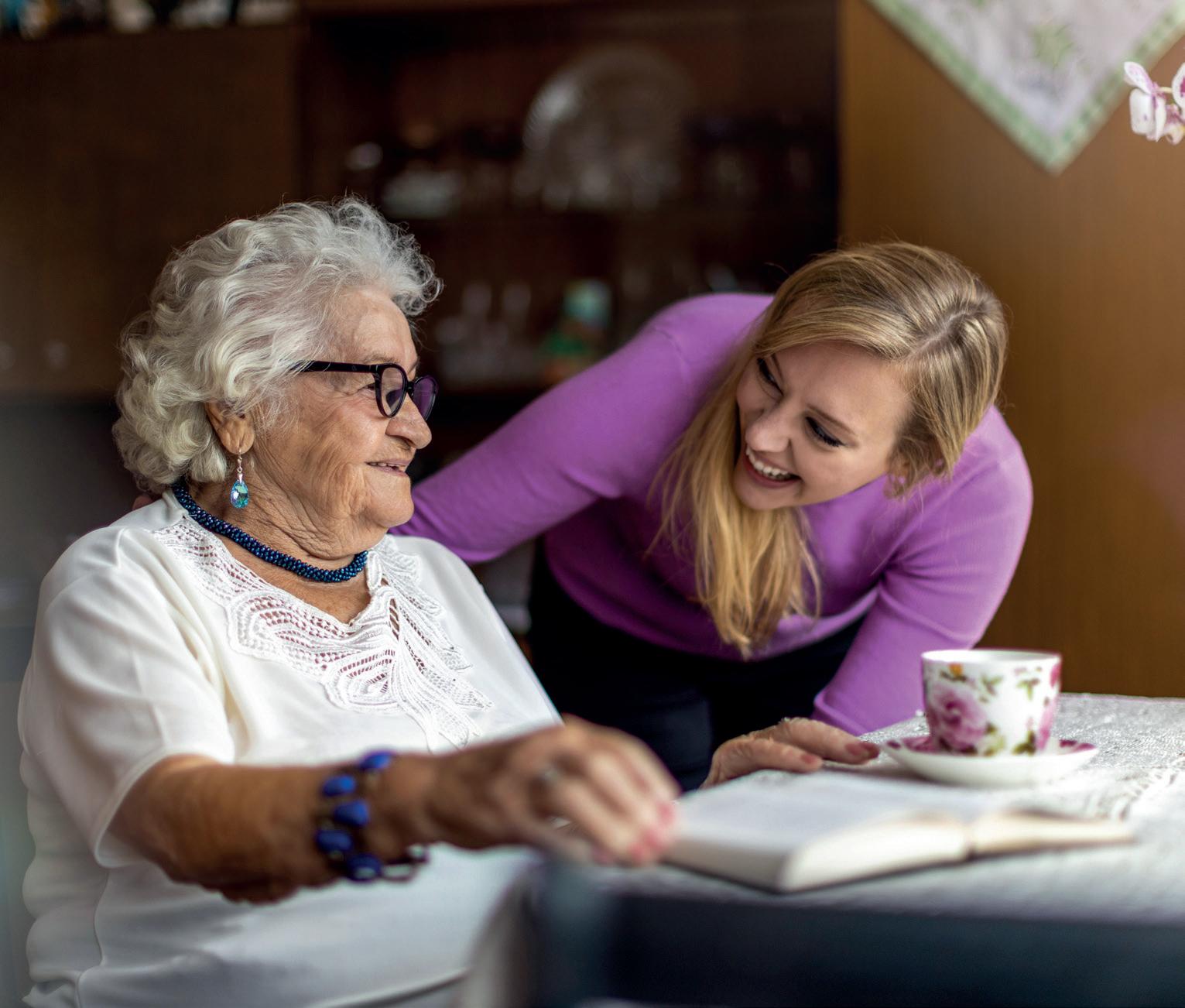
C Understand relevant legislation, policies and procedures nationally and locally and within their organisation and role. Assess, manage and respond to risk in their area of responsibility
C Provide individuals and professional partners with appropriate tools and information to help them make informed choices to access support relevant to their needs
C Work collaboratively with individuals, their wider network and partner agencies, providing professional challenge
C Use appropriate observation, questioning, problem solving and analysis techniques when undertaking assessments for early intervention
C Apply organisational health, safety, equality and welfare procedures when managing caseloads to ensure the welfare of self, clients, their wider network and professional partners
C Apply relevant theories and evidence-based strategies in
C Manage multiple cases to meet individual or family’s needs
C Prioritise interventions based on presenting needs
C Produce detailed and, accurate records that meet organisational and legislative requirements

C Use appropriate techniques to build and maintain professional relationships that help to ensure needs of individual cases are met
C Work independently as a practitioner within the wider team context, drawing on direction and support when needed.
C Provide impartial information, advice and guidance in a format that meets the needs of the individual
C Use professional judgement to understand the complexities of a situation and make appropriate decisions
C Level 4 Early Intervention Practitioner standard
C Functional Skill Level 2 in English (unless previously achieved)
C Functional Skill Level 2 in mathematics (unless previously achieved)
C Regular assignments and observations
C The creation of a portfolio of evidence
C An End Point Assessment (EPA)
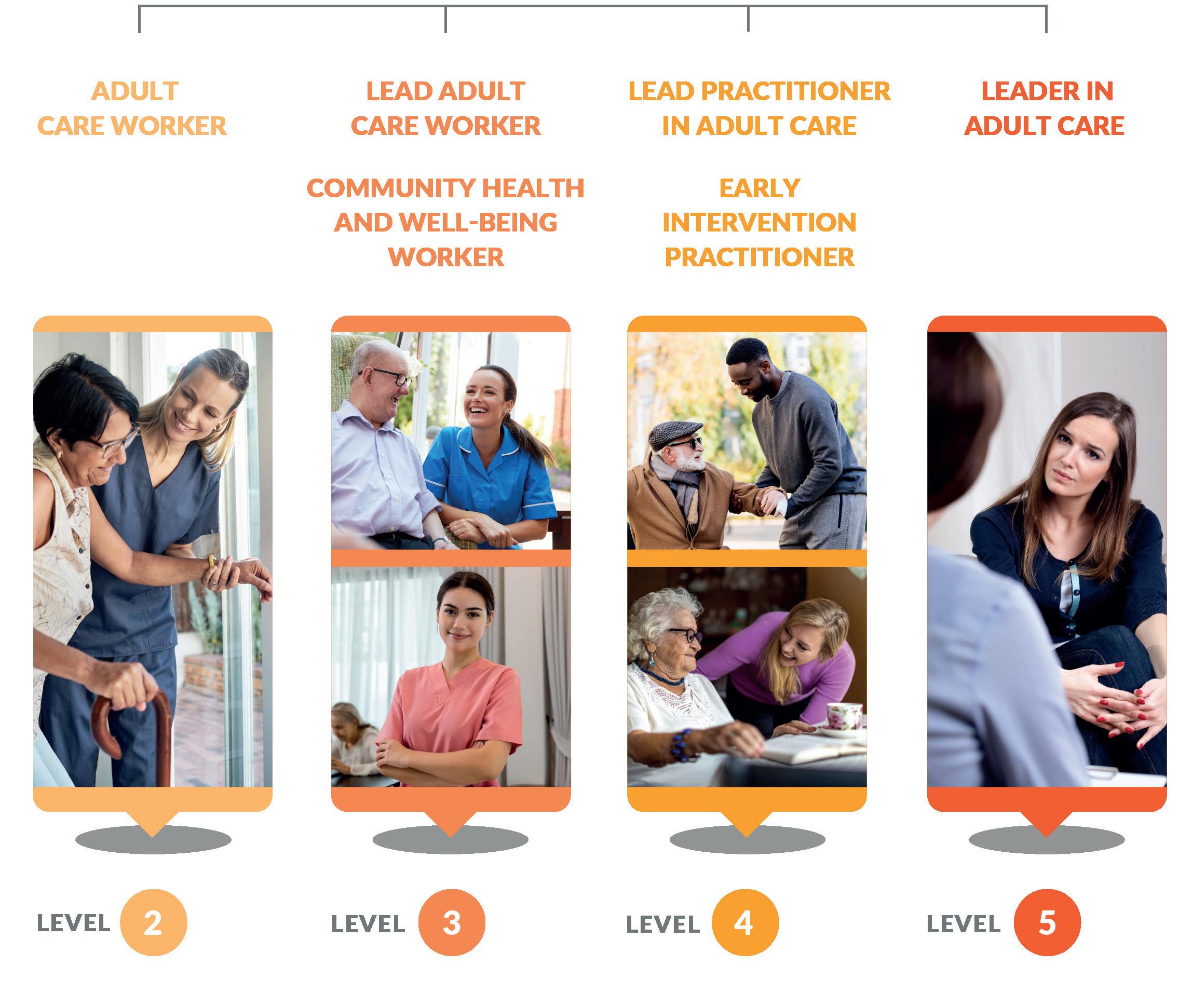


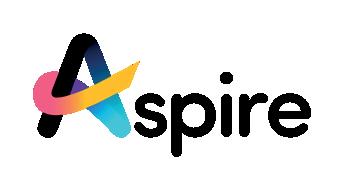


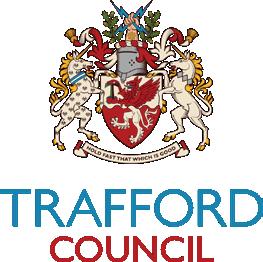


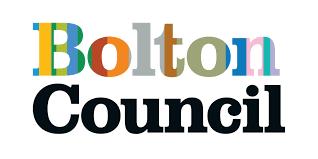
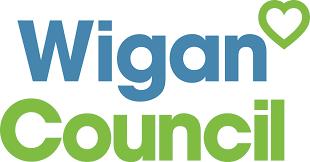

Here are just some examples of the fantastic employers and industry partners we work with to support their apprenticeship training.
Frontier House Salford Quays
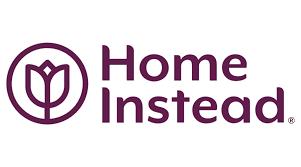
M50 3SR
